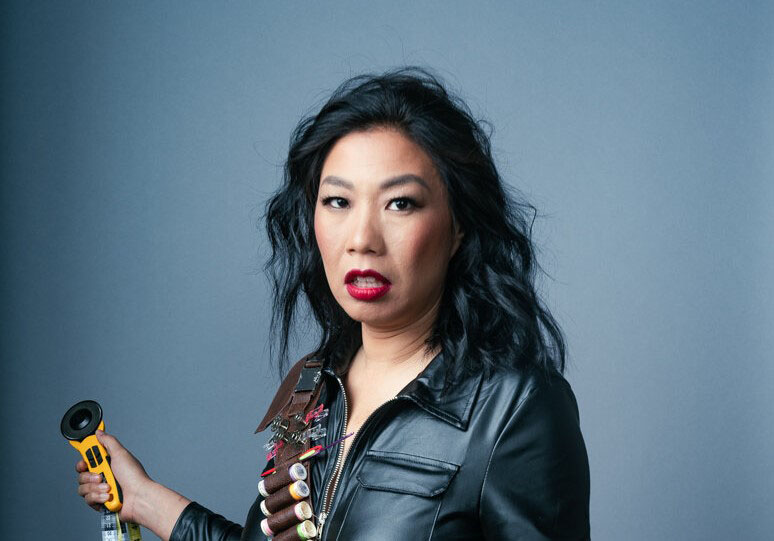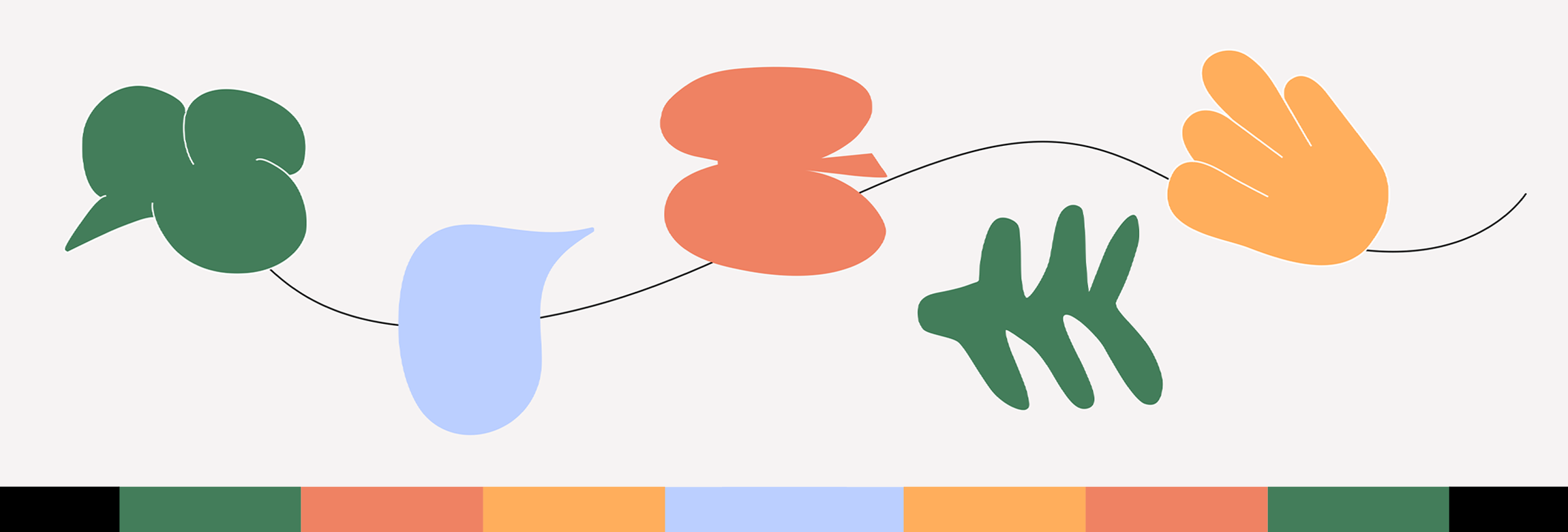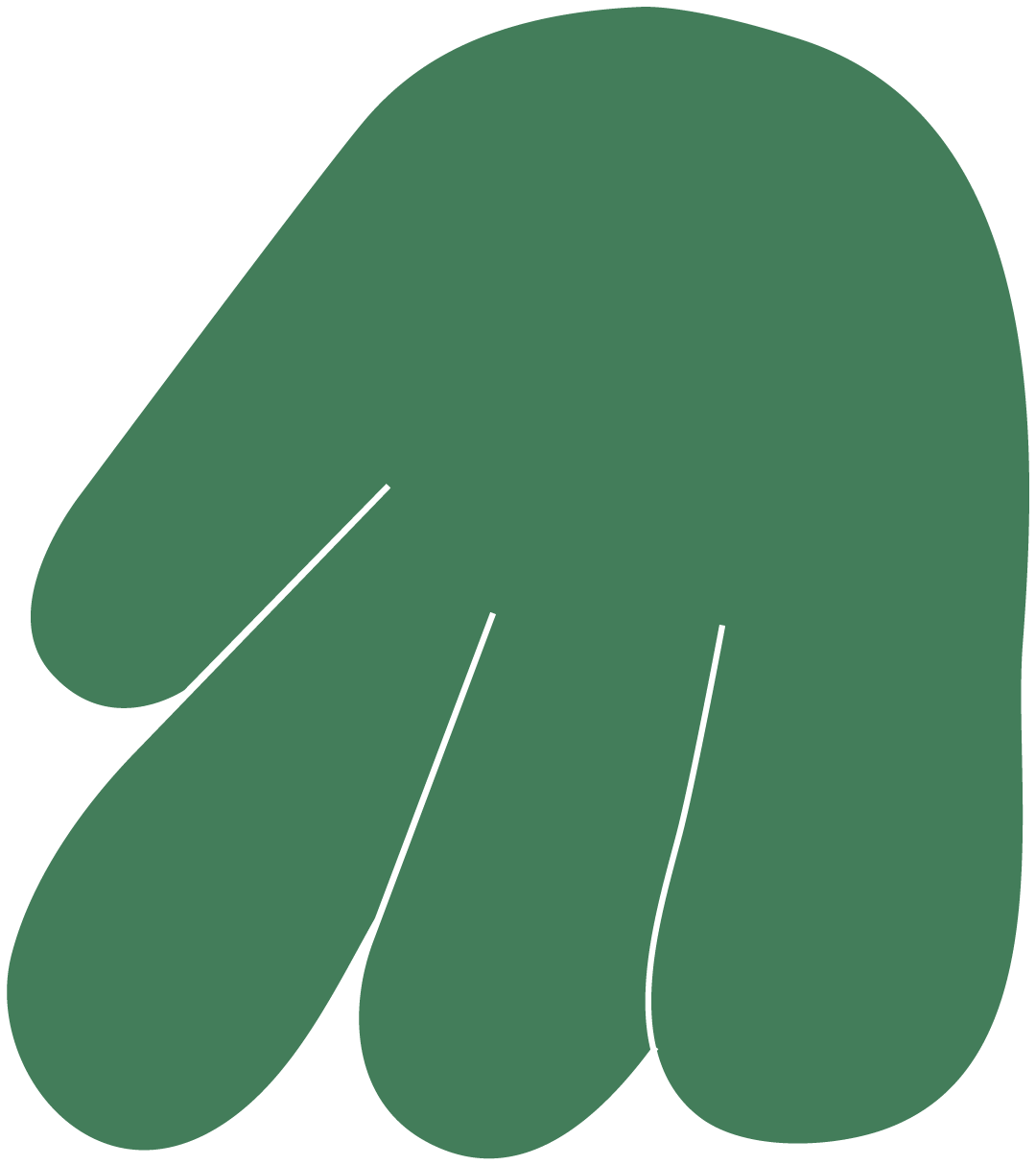
KRISTINA
WONG
How can we create dignity in labor? What would it mean to forefront and resource mutual aid in crisis response?
Photograph by Tom Fowler
Watch our conversation with Kristina Wong and read along below.
Video Transcript
Auntie Sewing Squad is a network of hundreds of Aunties across the United States who have sewn and shipped tens of thousands of masks to First Nations, farmworkers, migrants seeking asylum, incarcerated communities and poor communities of color. The group was founded March 24, 2020 by performance artist and comedian Kristina Wong shortly after California went into the first shelter-in-place order. The youngest Auntie is 8, while the eldest is 93.
I actually didn't know what mutual aid was. People were like, “what you're doing is mutual aid” and I had to look up a YouTube video on it and I was like, oh! It's like charity, but without the condescending, patronizing thing about it.
We're literally like watching our cities in complete chaos with unrest and stuff, and I remember typing, “If this is the end, we go down sewing.”
I heard that there was a need for home-sewn masks. It was a moment where I was like, I have an essential skill. I didn't become a nurse, but I can help a nurse. I was like okay, I’ve only sewn my set pieces, vagina costumes, like completely crude props, all sorts of fabric genitalia — never made medical equipment, never expected to save anyone’s life with this kind of stuff, but let me do this!
I started sewing masks and I offered very naïvely — you know, with my half yard of cotton fabric — “Oh, I'll make you a mask.” And that quickly escalated into hundreds of requests, very scary requests from people who are afraid to go to work. I’m talking about nurses, people working at homeless shelters, delivery people, [people] who were like “I don’t know what to do,” or “They're telling us at the hospital to tie bandanas around our face.”
So, you know, I was totally overwhelmed.
Why 'Aunties'?
The gift of Audrey just sort of planting that image in my head as we were like on the street, and they handed me their pre-cuts and said, “You know, my hands are actually best made for breaking bread, so I can't cut any more, but I'll find you other volunteers. They all have to be Chinese” — which was really weird.
But planting this idea of Aunties in my head was great because I think it sort of takes the pressure off of ‘professional seamstresses making masks’ or ‘anonymous people with no faces who labor for you’. Like that's to me what a lot of these other groups are implying. But something about saying “Auntie” in the group has given folks a script for how to enter the group, it sort of casts them, gives them a role to play in the group.
The fact that we can reference each other — and some Aunties still go “Hey ladies!” and I'm always like… because I feel like it's better to say “Aunties” because it's just so much sweeter.
But yeah, I think it implies a sort of care.
I usually try to just say “Thank you, Auntie” — like, I don't know what gender they identify with — but I think people like that because they feel like, “Oh, I'm part of this community. I'm an Auntie, I'm in this family.”
Dignity in Labor
For a lot of the Aunties, they’re very social in the group and love talking and sharing, and this has been their comfort in this time. This has been their community in a very scary time. It has given them a sense of purpose that keeps them from feeling helpless but also making sure that they feel like they are directly connected to who they are sending their masks to.
So when we have a request from a community, we offer it out to the group. It's not an automatic “okay, we'll send those over.” It's we can put up your request and the Aunties decide whether or not they're going to stay up through the night or whatever their process is to sew those masks.
I think for me it's very important for the recipients to… because we've gotten so Amazon Primed to understand that you can just get things by pressing buttons, you forget that there's someone on the other end who did that. But occasionally I get a request that felt like they were treating me like a free version of the 99-cent store or that like I just have nothing to do all day and I just love sewing free stuff for people. I felt like I wanted to give dignity to that labor.

A Collective Process
We have a whole team of Super Aunties, and those are the Aunties who maintain our spreadsheets and vet the requests that we get from organizations. Yeah, we have all sorts of positions that have been invented over the last nine months.
We have Haggle Aunties, these are Aunties who, at one point when it was really hard to get materials, would go into the Garment District and their job is to bargain for the lowest price. We have a Wheel-and-Deal’em Auntie; she’s Korean and she found a Korean guy who sells inkjet cartridges and medical equipment. We have Cutting Aunties who cut the fabric. We have Driver Aunties.
I find also in the Asian American community that's being used as a reference more and more to create a certain kind of pride around getting older, like “I'm an Auntie, I’m one of those Aunties sitting around watching TV.” And it sort of gives us a sense of pride versus self-loathing around getting older or being without child or whatever.
Care is Political
We have to find other ways for this work to create value and meaning for us who are performing it or else we’re just gonna croak, pop, get exploited by these systems. It feels like this weird performance, like I’m building this platform — with help, right — but it's also about reminding people that this labor takes time.
But really, at this point, that’s why we just see it as solidarity work. At this point, this is unpaid labor supporting groups that are invisible.
So that's when the shift began to happen, where it began to feel more political in the sense of, when you begin to look at who these communities are: a lot of them are indigenous; a lot of them are undocumented; a lot are immigrants; a lot don't have access to water, to food, to health care. That's when it begins to feel political because it feels like why didn’t the government help provide for these folks who, you know, provide our food table for us.

There's sort of an immediacy with mutual aid that government can't fit. But also I feel like FEMA should be abolished and replaced with us — like with salaries — but we could totally do it way better. We could find those communities. But I do feel like there's sort of a culture of care and actual human connection that is missing from how care is delivered, and there's something I think really amazing about receiving a box of home-sewn masks versus like a giant crate of factory-made masks. Like yes, both serve the same function, but there's something about making that heart-to-heart connection with the community that we do that we would love to figure out how FEMA could also do.
I don't want to preserve the pandemic part of this, but one thing I really loved is the care and the respect that I feel for people that I never really had time to do before. Like, I never really had time to sit and contemplate and connect with these folks who, in any other situation, I could see myself meeting them and just like not getting along with them or not finding a way to connect. But something about doing this project together has connected us for life.
Word of the Year
They say that the Merriam-Webster Word of the Year is “pandemic.” I really feel like it’s “care” and it’s about thinking how radical an idea it is to care for people you’ve never seen, to put your care and energy into people who are actually indirectly caring for you — whether it’s farm workers, or day laborers, teachers or medical professionals. You might be in the hospital, but it is so radical to think about, like, I can put my labor towards these communities that keep us going, that keep our economy going, that keep food moving through our cities.
And that's huge.


